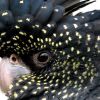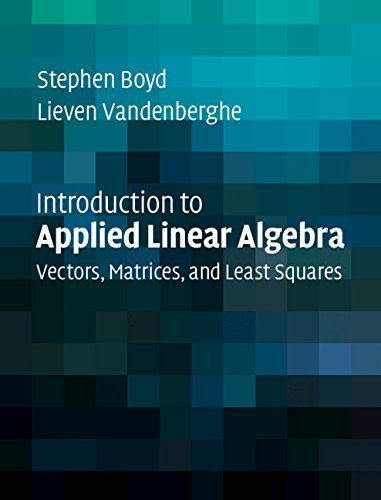14 Math Books That Separate Experts from Amateurs
Recommended by John Urschel, Kirk Borne, Grant Sanderson and 11 more experts to deepen your mastery of Math
Create a Math course with AI
Generate a personalized AI-powered course, tailored to your goals and topics of interest
What if the books you choose could unlock new ways of thinking about math, bridging the gap between abstract theory and real-world applications? Math is not just a subject confined to classrooms but a powerful lens to understand the universe’s patterns and mysteries. Today, more than ever, mastering math opens doors to innovation across science, technology, and everyday problem solving.
John Urschel, an MIT Mathematics PhD and former NFL player, stumbled onto Infinite Powers during his study of calculus, appreciating how it connects deep math with natural phenomena. Kirk Borne, a Principal Data Scientist and PhD Astrophysicist, praises Mathematical Mindsets for reshaping math education with evidence-based teaching strategies. Meanwhile, Grant Sanderson, known for his 3Blue1Brown math channel, found Change Is the Only Constant to be a refreshing narrative that humanizes calculus with humor and stories.
While these expert-curated books provide proven frameworks, readers seeking content tailored to their specific background, skill level, and goals might consider creating a personalized Math book that builds on these insights. This approach can accelerate your math journey with focused, customized learning paths.
Recommended by John Miller
Carnegie Mellon University expert
“A lot of modern science is applied math. Thus, The Princeton Companion to Applied Mathematics is a remarkable compendium of insight from across the sciences.” (from Amazon)
What started as a quest to unify scattered knowledge became The Princeton Companion to Applied Mathematics, crafted by Nicholas J. Higham and his distinguished co-authors. You’ll explore nearly 200 thematic entries covering modeling, simulation, dynamical systems, and numerical methods, all explained with clarity that bridges theory and application. For example, chapters on continuum mechanics and combinatorial mathematics provide concrete frameworks to understand complex phenomena. This volume suits advanced students, researchers, and professionals who need a definitive, yet accessible, guide to applied math's multifaceted landscape.
The methods Daniel J. Velleman developed while teaching at Amherst College emerge clearly in this book, which focuses on bridging the gap between solving math problems and crafting rigorous proofs. You’ll start with foundational logic and set theory, then move through detailed chapters that break down proof construction using clear examples and exercises, including a fresh chapter on number theory. This approach is ideal if you're a student or professional aiming to grasp the language and structure of proofs, whether in mathematics, computer science, or philosophy. While it assumes only standard high school math, the book dives deep enough to challenge and build confidence in anyone ready to tackle advanced mathematical reasoning.
This personalized math book explores fundamental and advanced topics tailored specifically to your interests and goals. It covers key areas such as algebra, calculus, probability, and problem-solving techniques, providing a clear pathway designed to match your background and skill level. By focusing on your unique learning needs, the book reveals connections between concepts and applications that help deepen understanding and mastery. The tailored approach integrates diverse mathematical ideas into a coherent journey, addressing challenges you want to overcome and topics you wish to explore further. This custom guide would examine essential math principles while adapting explanations to your pace, making complex subjects accessible and engaging.
Recommended by John Urschel
MIT Mathematics PhD Student and Former NFL Player
“I hope they enjoy it as much as I did. If you or someone you know is studying Calculus, this book is highly recommended.” (from X)
When Steven Strogatz realized how calculus shapes everything from GPS to DNA, he set out to reveal its true power in everyday life. Drawing on his decades as a Cornell professor and acclaimed math communicator, he walks you through how calculus breaks down complex problems — like calculating planetary motion or fighting AIDS — into manageable parts. You’ll gain insight into the history, principles, and surprising simplicity behind what many fear as intimidating math, with vivid examples like the discovery of Neptune and gravitational waves. This book suits anyone curious about math’s role in the universe, especially learners seeking a fresh, accessible perspective beyond formulas.
Drawing from his role as Dean of the College of Science & Engineering, Sheldon Axler approaches linear algebra by focusing on the structure of linear operators rather than determinants, which he reserves for later chapters. You will learn to navigate core concepts like vector spaces, eigenvalues, and inner-product spaces with clarity, thanks to his motivated explanations and streamlined proofs. The book’s exercises, now expanded with over 300 new problems, actively engage you in manipulating linear algebra objects and understanding advanced topics like quotient and dual spaces. This text suits those ready to deepen their grasp beyond introductory material, especially math majors seeking a more conceptual and less computational approach.
Joshua Holden brings his expertise as a Professor of Mathematics to demystify the world of cryptography through the lens of mathematics rather than history alone. You learn how substitution and polyalphabetic ciphers work, including the famous Caesar cipher, and progress to modern encryption methods like public-key cryptography. The book balances theory with practical examples, such as Spartan transposition ciphers, helping you grasp the mathematical principles behind code making and breaking with only high school algebra required. If you're curious about how math underpins digital security, this book offers clear explanations without oversimplifying, though it suits those ready to engage with mathematical reasoning rather than casual readers.
This tailored book explores a personalized, step-by-step calculus study plan designed to accelerate your understanding through focused daily lessons. It covers foundational concepts such as limits and derivatives, progressions into integrals and series, and practical problem-solving techniques that match your current knowledge and learning pace. The content is thoughtfully tailored to your interests and goals, ensuring that complex calculus topics are approachable and engaging. By synthesizing the collective insights of calculus education, it creates a clear pathway that bridges expert knowledge with your unique learning needs, making challenging material accessible and relevant.
After analyzing key mathematical milestones, John Stillwell developed this thorough exploration of proof's evolution and its pivotal role in shaping mathematical knowledge. The book traces proof from Euclid’s geometric foundations through algebra, calculus, and logic, revealing how proof methods have driven innovation across disciplines. You'll gain insight into deep concepts like Gödel's incompleteness and the limits of provability, explained through historical episodes and influential figures. This book suits anyone keen on understanding math’s intellectual backbone rather than just its formulas, offering a rich perspective on how mathematical truth is established and challenged.
Recommended by Clifford Pickover
Author of The Math Book and Archimedes to Hawking
“A fascinating tour of the history of mathematics, provided by snapshots of the lives of ingenious mathematicians who guided humanity on a vast intellectual journey. From Thales to Brahmagupta, Ramanujan, Mandelbrot, and Mirzakhani, we stand in awe of their perseverance and brilliance.” (from Amazon)
Alfred S. Posamentier's extensive academic career in mathematics education clearly informs this engaging collection of fifty biographies that trace the human stories behind major mathematical developments. You gain insight into both the personal struggles and groundbreaking discoveries of figures like Isaac Newton, Sophie Germain, and Srinivasa Ramanujan, making complex contributions accessible without requiring a deep math background. Chapters reveal, for example, Germain's secret pursuit of knowledge under a male pseudonym and Emmy Noether's profound impact on algebra and physics, blending history with mathematical legacy. This approach suits you if you're curious about the people who shaped math’s evolution and want context that brings formulas to life.
Recommended by Kirk Borne
Principal Data Scientist, PhD Astrophysicist
“Another excellent book by @JoBoaler >> "Mathematical Mindsets: Unleashing Students' Potential through Creative Math, Inspiring Messages and Innovative Teaching" #Mathematics #DataLiteracy #DataFluency Reminds me of my interview:” (from X)
Drawing from her extensive background as the Nominelli-Olivier Professor of Mathematics Education at Stanford University, Jo Boaler developed a fresh approach to overcoming math anxiety and fostering student potential. This book provides you with a mindset framework to transform self-doubt into confidence, supported by research into effective math teaching methods. You’ll explore how equitable grouping and innovative 21st-century math initiatives can reshape classroom experiences. If you’re a K-12 educator or a parent aiming to guide children through math learning challenges, this book offers concrete strategies and inspiring messages to make math approachable and engaging.
When Steven J. Miller developed the methods in this book, he was teaching probability courses at Brown, Mount Holyoke, and Williams Colleges and noticed students struggled with the subject's abstract nature. This guide breaks down probability by first building your intuition through accessible explanations before moving into technical proofs, supported by numerous worked examples and even video lectures online. You’ll learn how to navigate probability concepts from foundational prerequisites to advanced applications, making it suitable whether you're starting fresh or supplementing a course. However, if your background in algebra and precalculus is limited, some chapters might challenge you more than others.
Recommended by Michael Shaughnessy
Past President, National Council of Teachers of Mathematics
“A Mind for Numbers is an excellent book about how to approach mathematics, science, or any realm where problem solving plays a prominent role.” (from Amazon)
Drawing from her own struggle with math and science, Barbara Oakley PhD rethinks how you can learn these subjects more effectively. She challenges the idea that math is solely about rigid logic, showing instead how creativity plays a crucial role—like the fact that over three hundred proofs exist for the Pythagorean Theorem. You’ll learn techniques to engage both focused and diffuse thinking modes, which help you solve problems without burning out. This book suits anyone from students wrestling with STEM requirements to professionals aiming to build new skills, offering insights that extend beyond math to all challenging learning situations.
Recommended by Trevor Hastie
American Statistician and Computer Scientist
“'The kings of convex optimization have crossed the quad and produced a wonderful fresh look at linear models for data science. While for statisticians the notation is a bit quirky at times, the treatise is fresh with great examples from many fields, new ideas such as random featurization, and variations on classical approaches in statistics. With tons of exercises, this book is bound to be popular in the classroom.'” (from Amazon)
Stephen Boyd and Lieven Vandenberghe bring their extensive academic and engineering backgrounds to this textbook, designed to make applied linear algebra accessible without prior knowledge. You’ll explore vectors, matrices, and least squares through practical examples spanning machine learning, signal processing, and finance, supported by exercises and computational tools in Julia and MATLAB®. The chapters guide you from foundational concepts to applications, perfect for students or self-learners aiming to tackle engineering problems with confidence. If you’re looking to build a solid grasp of linear algebra tailored to real-world data science challenges, this book lays the groundwork clearly and methodically.
Recommended by Nassim Nicholas Taleb
Professor of Risk Engineering, Author of "The Black Swan"
After extensive research into multiple mathematical disciplines, A. D. Aleksandrov compiled this volume to illuminate diverse areas like analytic geometry, algebra, differential equations, and topology. You gain a nuanced understanding of advanced concepts such as partial differential equations, calculus of variations, and the theory of prime numbers presented through the insights of 18 distinguished mathematicians. This book suits those who want to deepen their grasp of theoretical and applied math, especially in geometry and analysis, supported by classical and contemporary Soviet-era perspectives. Readers familiar with undergraduate mathematics will find specific frameworks and examples that sharpen problem-solving skills across various branches.
What if everything you knew about probability was incomplete? Benedict Gross, a Harvard and UC San Diego professor with decades of teaching experience, developed this book to bring clarity to probability concepts often misunderstood or overlooked. You’ll explore the meaning behind formulas rather than rote memorization, learning how to apply counting principles and probabilistic reasoning to real-world problems, from everyday decisions to games of chance. The text also highlights situations where intuition misleads, giving you a more grounded grasp of uncertainty. This book suits curious minds new to probability and anyone wanting a clear, mathematically informed perspective beyond surface-level treatments.
Recommended by Grant Sanderson
Creator of 3Blue1Brown
“With wit that had me laughing from page one, Change Is the Only Constant describes calculus as a way of thinking about the world, driven by insightful and hilariously illustrated examples drawn not just from the usual suspects, like physics and economics, but from history, poetry, literature, and the thoughts of a corgi at the beach.” (from Amazon)
Unlike most math books that focus on formulas and rote techniques, Ben Orlin challenges you to see calculus as a language for understanding life’s constant changes. Drawing from his experience as a math teacher and blogger, Orlin uses humor and simple illustrations to connect abstract concepts like limits and derivatives to everyday experiences, from love and risk to time and change. You’ll explore 28 stories that weave together math, literature, and even the antics of a dog named Elvis, making the subject approachable whether you’re new to calculus or looking to deepen your intuition. This book suits those curious about how math shapes the world, though it’s less about technical mastery and more about conceptual insight.
Conclusion
These 14 titles reveal clear themes: the power of rigorous proof (How to Prove It), the beauty and application of calculus (Infinite Powers, Change Is the Only Constant), the significance of math history and biography (Math Makers, The Story of Proof), and innovative approaches to learning and teaching math (Mathematical Mindsets, A Mind for Numbers).
If you're grappling with abstract concepts, starting with How to Prove It and Linear Algebra Done Right can build a solid foundation. For applied interests, The Princeton Companion to Applied Mathematics and Introduction to Applied Linear Algebra offer practical insight. To overcome math anxiety or enhance teaching, Mathematical Mindsets and A Mind for Numbers provide research-backed strategies.
Alternatively, you can create a personalized Math book to bridge the gap between general principles and your specific situation. These books can help you accelerate your learning journey and deepen your mathematical understanding with expert guidance.
Frequently Asked Questions
I'm overwhelmed by choice – which book should I start with?
Start with How to Prove It if you want to build a strong foundation in mathematical reasoning. For a more conceptual and engaging introduction, Infinite Powers or Change Is the Only Constant offer accessible insights into calculus and its applications.
Are these books too advanced for someone new to Math?
Not necessarily. Titles like Mathematical Mindsets and A Mind for Numbers are designed to support learners and educators at all levels. Others, like Linear Algebra Done Right, cater to more advanced readers but remain approachable with effort.
What's the best order to read these books?
Begin with foundational texts such as How to Prove It and The Probability Lifesaver. Then explore applied topics with The Princeton Companion to Applied Mathematics and Introduction to Applied Linear Algebra. Finish with books on history and mindset to enrich your perspective.
Do I really need to read all of these, or can I just pick one?
You can pick based on your goals. Each book offers a unique angle—proof techniques, applied math, history, or educational strategies. Reading a few complementary titles will deepen your understanding, but one well-chosen book can still be impactful.
Which books focus more on theory vs. practical application?
How to Prove It, The Story of Proof, and Mathematics explore theory and foundations. The Princeton Companion to Applied Mathematics and Introduction to Applied Linear Algebra focus on practical applications in science and engineering.
How can I tailor these expert insights to my specific math learning goals?
These expert books provide solid frameworks, but personalizing your learning can boost effectiveness. By creating a personalized Math book, you get content matched to your background, interests, and objectives, bridging expert knowledge with your unique needs.
Help fellow book lovers discover great books, share this curated list with others!
Related Articles You May Like
Explore more curated book recommendations




















